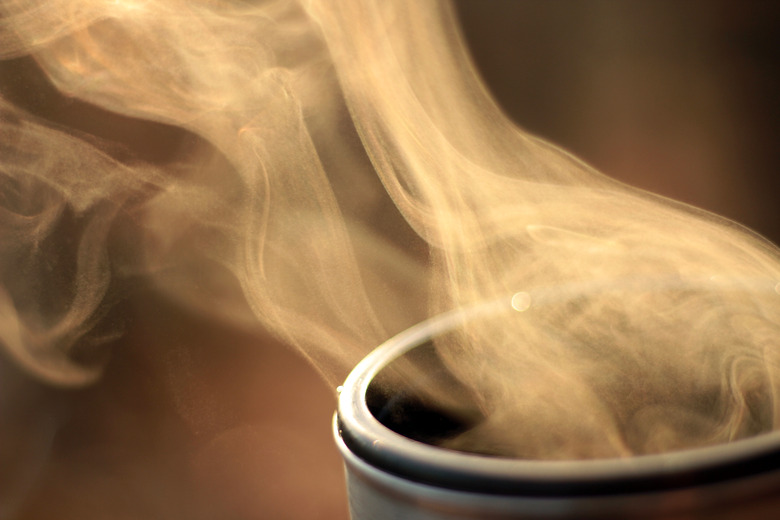Fast Ways To Make Water Evaporate
Evaporation is the process by which water becomes water vapor (its gas form), via the application of heat. If you're trying to make water evaporate quickly, whether for a science experiment or other reason, then several factors must be taken into account. These include the amount of water you're looking to evaporate, the amount of heat being applied, the method by which that heat is applied and the surface area of the water (how deep or shallow the water is).
TL;DR (Too Long; Didn't Read)
TL;DR: When trying to make water evaporate quickly, it is best to spread the water over a large surface area and apply heat as evenly as possible. If using hot air to evaporate water, increased velocity will increase the speed of evaporation.
How Water Becomes Water Vapor
How Water Becomes Water Vapor
Water is an amazing substance. Not only is it necessary to sustain nearly all life on earth, it exists in three distinct states: solid, liquid and gas. The process by which water transforms from liquid to gas is called evaporation. Evaporation occurs when heat is applied, and it occurs especially fast once water reaches 212 degrees Fahrenheit. This temperature is known as the "boiling point". It stands to reason, then, that if you're trying to make water evaporate, it is necessary to apply heat. But some heat-application methods will cause water to evaporate more quickly than others. Likewise, the amount of water itself, as well as its surface area, must be taken into account.
How Much Water Is There?
How Much Water Is There?
Just as larger portions of food take longer to cook, larger amounts of water take longer to boil. This means the more water you are looking to evaporate, the more time it is likely to take. Water also has a high heat index, meaning that it absorbs heat before it begins to get hot. Because of this, large amounts of water can take a long time to reach their boiling point. If you are trying to boil water quickly, it makes sense to begin with a small amount. Even a few cups should be enough to observe the evaporation process.
How Is The Water Distributed ?
How Is The Water Distributed ?
In order for water molecules to change from liquid to gas, they must be directly exposed to a source of heat. This means that water with a greater surface area, such as water spread out across a shallow pan, will heat up faster than water with a smaller surface area, such as water in a bowl or cup. In other words, shallow is better when it comes to evaporating water quickly.
For Speed, Distribute Heat Evenly
For Speed, Distribute Heat Evenly
By now we know that heat must be applied in order to evaporate water, but what is the best method for doing so? There are many options. You could place your water on a stove or bunsen burner, hold it over a campfire, or even blow hot air across its surface.
However, if speed is your goal, then it is imperative that you heat your water quickly and evenly, so that as many water molecules as possible are exposed to direct heat. Modern stoves are hard to beat, in this regard. Stove eyes take almost no time to heat up, and are in fact made to heat food quickly and evenly.
If your experiment or project calls for you to heat your water without the use of stoves or fire, then hot air blown over the water's surface may be substituted. When using this method, the key to quick evaporation is the temperature and velocity of the air being used. Use air that is as hot as possible, and at as high a velocity as possible (without unsafely blowing water out of its container). High velocity air helps to break up the surface tension of the water, exposing more water molecules to direct heat.
There are many factors to consider when attempting to evaporate water quickly. But if a relatively small amount of water, spread out over a wide surface area is heated quickly and evenly, it should not take long at all to turn liquid water into water vapor.
Cite This Article
MLA
Rytting, Michael. "Fast Ways To Make Water Evaporate" sciencing.com, https://www.sciencing.com/fast-ways-make-water-evaporate-8505934/. 29 April 2018.
APA
Rytting, Michael. (2018, April 29). Fast Ways To Make Water Evaporate. sciencing.com. Retrieved from https://www.sciencing.com/fast-ways-make-water-evaporate-8505934/
Chicago
Rytting, Michael. Fast Ways To Make Water Evaporate last modified August 30, 2022. https://www.sciencing.com/fast-ways-make-water-evaporate-8505934/
